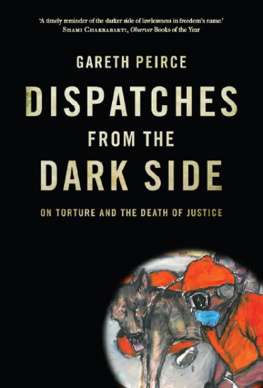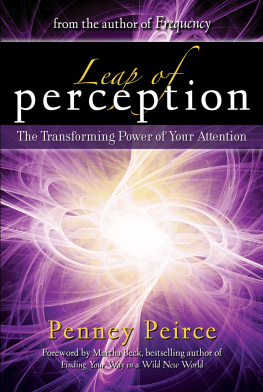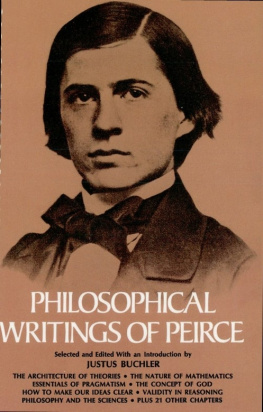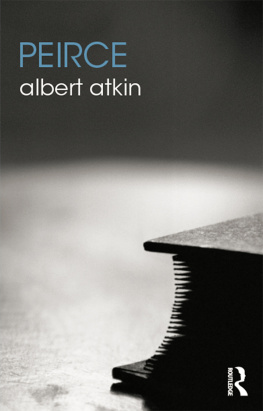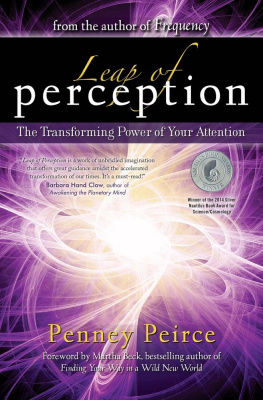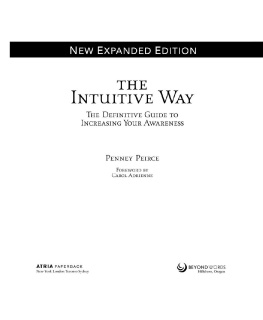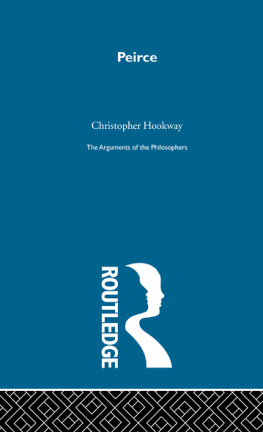GARETH PEIRCE is a lawyer who represents individuals who are or have been the subject of rendition and torture, held in prisons in the UK on the basis of secret evidence, or interned in secret prisons abroad under regimes that continue to practise torture. She has represented many men and women from communities wrongly deemed suspect, on cases such as those of the Guildford Four, the Birmingham Six, Judith Ward, Jean Charles de Menezes and Moazzam Begg.
DISPATCHES FROM THE DARK SIDE
On Torture and the Death of Justice
GARETH PEIRCE

London New York
First published by Verso 2010
This updated paperback edition first published by Verso 2012
Gareth Peirce 2012
All rights reserved
Chapters in this book are based on articles that appeared in the London Review of Books and are republished here, in a revised form, by kind permission: Chapter 1, 14 May 2009; Chapter 2, 24 September 2009;Chapter 3, 10 April 2008; Chapter 4, 13 May 2010 (under the title Americas Non-Compliance).
The moral rights of the author have been asserted
1 3 5 7 9 10 8 6 4 2
Verso
UK: 6 Meard Street, London W1F 0EG
USA: 20 Jay Street, Suite 1010, Brooklyn, NY 11201
www.versobooks.com
Verso is the imprint of New Left Books
eISBN-13: 978-1-84467-829-7
British Library Cataloguing in Publication Data
A catalogue record for this book is available from the British Library
Library of Congress Cataloging-in-Publication Data
A catalog record for this book is available from the Library of Congress
Typeset in Fournier by MJ Gavan, Truro, Cornwall
Printed in the UK by CPI Bookmarque, Croydon
In recognition of those who have come back into the light and have told what happened, and of those still in darkness.
Preface
Each of these essays was written, at different times in the last three and a half years, as an urgent SOSan attempt to set out the details of disturbing contemporary events, not all of which could easily be found in the commentaries of the daily news. Even less accessible in instances such as these, where the facts suggest that the ship of state is sailing towards moral and political catastrophe, are the legal principles that might provide a life raft.
The last several years have found us in the midst of more such catastrophes than we could ever, in our worst nightmares, have dreamed of. We could never have envisaged that the history of the new century would encompass the destruction and distortion of fundamental Anglo-American legal and political constitutional principles in place since the seventeenth century. Habeas corpus has been abandoned for the outcasts of the new order in both the US and the UK, secret courts have been created to hear secret evidence, guilt has been inferred by association, torture and rendition nakedly justified (in the UK our governments lawyers continue to argue positively for the right to use the product of both) and vital international conventions consolidated in the aftermath of the Second World Warthe Geneva Convention, the Refugee Convention, the Torture Conventionhave been deliberately avoided or ignored.
It is the bitterest of ironies that John Lilburne, the most important originator of the rights we in this country and the United States claim and on which our respective constitutions, written and unwritten, were built, achieved this in large part as a consequence of his having been himself subjected to torture, to accusations based on secret evidence and heard by a secret court, to being shackled and held in extremes of isolation while exposed nevertheless to public humiliation and condemnation.
The worst excesses of the last ten years, which destroyed the certainties of those hard-won rights, should have sounded loud alarms, not least because of that precise historical parallel; one key in attempting to hang on to legal and moral concepts under attack is to remember their origin. Lilburne, an intractable young Puritan, with a strong sense of his rights as a freeborn Englishman, and a smattering of law, in 1637 was summoned before the Court of Star Chambera court comprising nothing more than a small committee of the Privy Council, without a jury, empowered to investigate. Lilburne had recently been in Holland and was charged, on the basis of information from an informant, with sending loosely defined fatuous and scandalous religious books to England. His defence was straightforward: I am clear I have sent none. Thereafter he refused to answer questions based on allegations kept secret from him as to his association with others suspected of involvement in the sending of the books; I think by the law of the land that I may stand uponmy just defence, and that my accusers ought to be brought face to face to justify what they accuse me of. For his refusal, he was fined 500, a fortune for an apprentice, and was lashed to a cart and whipped through the streets of London from Fleet to Westminster. He was locked in a pillory in an unbearable posture (in todays terminology a stress position), but yet exhorted all who would listen to resist the tyranny of the bishops, repeating biblical texts to the crowd applicable to the wrongs done to him and to their rights. On being required to incriminate himself: No man should be compelled to be his own executioner. He survived two and a half years in Fleet Prison, gagged and kept in solitary confinement, shackled and starving. The first act of the Long Parliament in November 1642 was to set him free, to abolish the Court of Star Chamber and to adopt a resolution that its sentence was illegal and against the liberty of the subject, and also bloody, cruel, wicked, barbarous and tyrannical.
Lilburnes principled and public stance and the extraordinary political movement of which he was part, the Levellers, produced far more though than a brief reaction of abhorrence to the use of torture and arbitrary imprisonment. By the end of the seventeenth century, there had crystallised the foundation of the concepts upon which we draw now (and which we constantly choose to forget or ignore)most importantly the concept of inalienable rights that pertain to the individual and not to the state. The Levellers insisted that the inalienable rights were possessed by the people and were conferred on them not by Parliament, but by God; no justification by the state could therefore ever justify their violation. For the preservation of these and the limitation of parliamentary power, the Levellers formulated a written constitution; never adopted in England, in the new world it became a political reality. In both countries, due processthe legal concept that gives effect to the idea of fairnesswas born from these ideas.
Once evidence of any countrys willingness to resort to torture is exposed, reactions of decency and humanity can be invoked without the necessity of legal explanation. Less likely is any instinctive reaction to evidence of the destruction of concepts of procedural fairness. Yet, in the imprecision and breadth of accusations, leading in turn to the banning of books and the criminalisation of ideas and religious thought, and in the wrong committed by secret courts hearing secret evidence, the lessons of John Lilburne and Star Chamber have been in the last ten years deliberately abandoned and sustained battles have still to be fought to reclaim the majority.
The shocking, reckless and ruthless disregard of all of these concepts seen in recent years is neither new nor unique to this country or to the US. The history of regions other than our own shows how fragile are the laws and their applications that we assume protect us when faced with a government determined to follow a contrary path. Repeatedly, historically, even nations which have recently emerged from the fires of hell remember the experience as it relates to themselves, but yet consign others to the same fate. Fewer than ten years after the end of World War Two, and only eight years from the UN Declaration of Human Rights, the first reports of the use of torture by the French against Algerians fighting their war of independence began to emerge, with justifications that today appear very familiar. (The first official reports in 1955 admitted some violence had been done to prisoners suspected of being connected to the FLN, but that this was not quite torture; The water and the electricity methods, provided they are properly used, are said to produce a shock which is more psychological than physical and therefore do not constitute excessive cruelty.) Sartre articulated the shock of realizing that torture had reappeared and was being justified so soon after it had been categorised as an aberration found only among psychotic and degenerate governments willing to violate all universally understood and recognized principles of justice:
Next page
